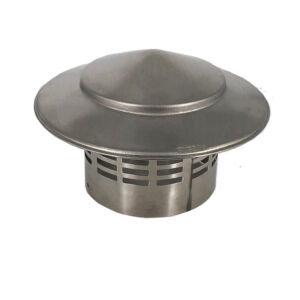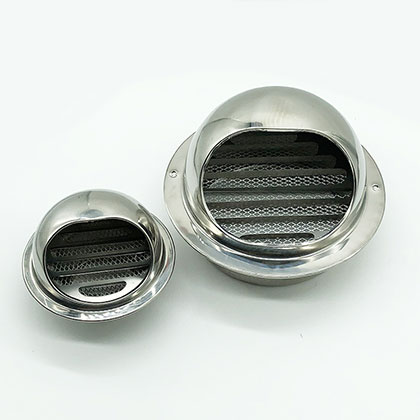導入:
Proper ventilation is crucial for maintaining a healthy and comfortable indoor environment. Among the various components that contribute to effective ventilation systems, ventilation caps play a significant role. 記事上で, we will explore the importance of ventilation caps, their functions, and how they contribute to improved air quality and energy efficiency.
What are Ventilation Caps?
Ventilation caps, also known as vent caps or exhaust caps, are protective covers installed on openings in buildings or structures, primarily used to facilitate air exchange. They are commonly found on roofs, walls, or ducts and serve as the final point of discharge for exhaust gases and stale air, while preventing unwanted elements from entering the ventilation system.
Functions of Ventilation Caps:
ある.Protection against External Elements:
Ventilation caps act as barriers, preventing the entry of rainwater, snow, debris, insects, birds, rodents, and other external elements into the ventilation system. By keeping out these unwanted substances, ventilation caps help maintain the integrity and efficiency of the entire ventilation system.
b.Exhaust Gas Discharge:
One of the key functions of ventilation caps is facilitating the discharge of exhaust gases generated by various systems such as HVAC (Heating, Ventilation, and Air Conditioning), kitchen hoods, and industrial machinery. These caps ensure the safe and efficient removal of harmful gases, preventing their accumulation within the building.
c.Airflow Regulation:
Ventilation caps are designed to regulate airflow by utilizing features like dampers or louvers. These adjustable components provide control over the amount of air entering or leaving the ventilation system, enabling optimal airflow based on specific requirements.
In gdxunjia you can find various types and sizes of vent caps, ステンレス鋼 304 and stainless steel 201 are available to meet your different needs.

Benefits of Ventilation Caps:
ある.Improved Indoor Air Quality:
By preventing the ingress of contaminants like dust, pollen, pollutants, and allergens, ventilation caps contribute to maintaining clean and healthy indoor air quality. This is especially important for individuals with respiratory conditions or allergies, as well as in commercial settings where air quality directly impacts occupant comfort and productivity.
b.Energy Efficiency:
Ventilation caps play a role in enhancing energy efficiency within buildings. By regulating airflow and preventing air leakage, they help minimize energy losses associated with heating and cooling systems. さらに, proper ventilation reduces the load on HVAC equipment, leading to reduced energy consumption and improved overall performance.
c.Extended Equipment Lifespan:
Unobstructed airflow and protection against external elements provided by ventilation caps contribute to the longevity of ventilation equipment. By preventing damage caused by moisture or debris, these caps help extend the lifespan of fans, ducts, and other components, reducing maintenance costs and ensuring reliable operation.
結論:
Ventilation caps are integral components of efficient ventilation systems, providing essential functions such as protection against external elements, exhaust gas discharge, and airflow regulation. With their contribution to improved indoor air quality, energy efficiency, and extended equipment lifespan, ventilation caps offer numerous benefits for residential, コマーシャル, and industrial applications. As we continue to prioritize healthy and sustainable living environments, investing in high-quality ventilation caps becomes increasingly crucial for optimal ventilation system performance.
For more information about Ventilation Cap, please click www.gdxunjia.com.



